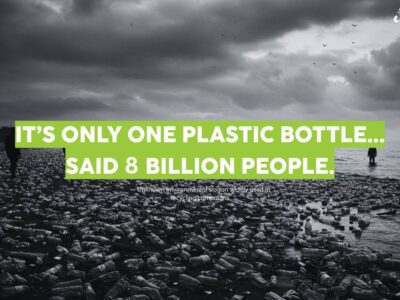A promising step toward a national ocean policy
 In June, President Obama created an Interagency Ocean Policy Task Force, and directed it to make recommendations for a national ocean policy. The Task Force got right to work. Now, after convening two dozen expert roundtables, inviting public comment, and holding the first of six public sessions, the Task Force has issued an Interim Report recommending key elements of a national policy.
In June, President Obama created an Interagency Ocean Policy Task Force, and directed it to make recommendations for a national ocean policy. The Task Force got right to work. Now, after convening two dozen expert roundtables, inviting public comment, and holding the first of six public sessions, the Task Force has issued an Interim Report recommending key elements of a national policy.
The Interim Report is very encouraging. If the Task Force follows this blueprint in fleshing out a national policy, and if it can bring the executive and legislative branches along, the result will be a clear national policy of putting environmental sustainability first, and an effective institutional framework for putting that policy into practice. The Interim report correctly identifies the need for “a strong, clear, overarching policy mandate” and “high-level direction and policy guidance from a clearly designated and identifiable authority,” combined with improved coordination within the executive branch as well as with states, tribes, and other authorities.
Substantively, the Task Force would clearly put environmental protection first in that “overarching policy mandate.” It recommends that national ocean policy rest on a commitment to stewardship that “ensures that the ocean, our coasts, and the Great Lakes are healthy and resilient, safe and productive, and understood and treasured.” The first element of the proposed national policy would be to”protect, maintain, and restore the health and biological diversity of ocean, coastal, and Great Lakes ecosystems and resources.” It sets out three “stewardship principles” to guide decisions about uses of the oceans:
(1) “As responsible environmental stewards we will protect, maintain, and restore the health, productivity, and resiliency of ocean, coastal, and Great Lakes ecosystems (including their waters and resources);”
(2) “Decisions affecting the ocean, our coasts, and the Great Lakes should be informed by and consistent with the best available science,” and guided by a precautionary approach;
(3) “. . . environmental damage should be avoided wherever practicable and . . . environmental costs should be internalized, taking into account the approach that those who cause environmental damage should generally bear the cost of that damage.”
Institutionally, the Task Force recommends creation of a National Ocean Council (replacing the current Committee on Ocean Policy). The Council would be an unwieldy place to actually make or implement policy, since it would include the leaders of all the cabinet and other major executive branch agencies with an interest in the oceans. But the Task Force would solve that problem by designating strong chairs and moving most of the Council’s actual business to subcommittees. The Chair of the Council on Environmental Quality and Director of the Office of Science and Technology Policy would co-chair the Council, giving it a firm environmental and science bent. Together, they would directly advise the President (who seems to be taking a refreshingly direct interest in ocean policy), and bring to the President’s ear any disputes that could not be resolved within the Council. It looks like most of the work of the Council would be done by a steering committee consisting of the co-chairs and representatives of two subcommittees, one focused on resource management and the other on science and technology.
Finally, the Interim Report sets out a series of proposed national priority objectives, including the use of ecosystem-based management, coastal and marine spatial planning (i.e. zoning), increasing knowledge and public education, and improving coordination among federal and other authorities.
This Report is an auspicious start to the Task Force’s work. It identifies the key issues and proposes a strong national policy of protecting the oceans, together with what looks to be an effective institutional framework for putting that policy into effect. Hopefully the President will act, soon, on these recommendations. Meanwhile, the Task Force will be turning its attention for the rest of the year to a more detailed look at how to implement coastal and marine spatial planning at the national level.
Reader Comments
2 Replies to “A promising step toward a national ocean policy”
Comments are closed.







Hi Holly,
Loved this post on ocean policy and think you did a great job of stating the facts. My name is Ava and I’m the blog moderator for a site called The Reef Tank, which is a marine issues forum and blog. We feature topics like climate change, ocean acidification, marine conservation, and coral reefs.
I wanted to ask you a particular marine science question but not through comments and I was wondering if you could e-mail me since there is no contact info for you. Could you please e-mail me at Charismaqueen100@gmail.com?
By the way, I contacted Cymie Payne, too. Had a climate change question for her, that is similar to the question I have for you.
Thank you for your time.
Hi Ava —
You can find contact information for any of us by clicking on the Contributors page and then clicking on the full bio. We are all lawyers, not scientists, so we are probably not the right source to answer your technical questions.